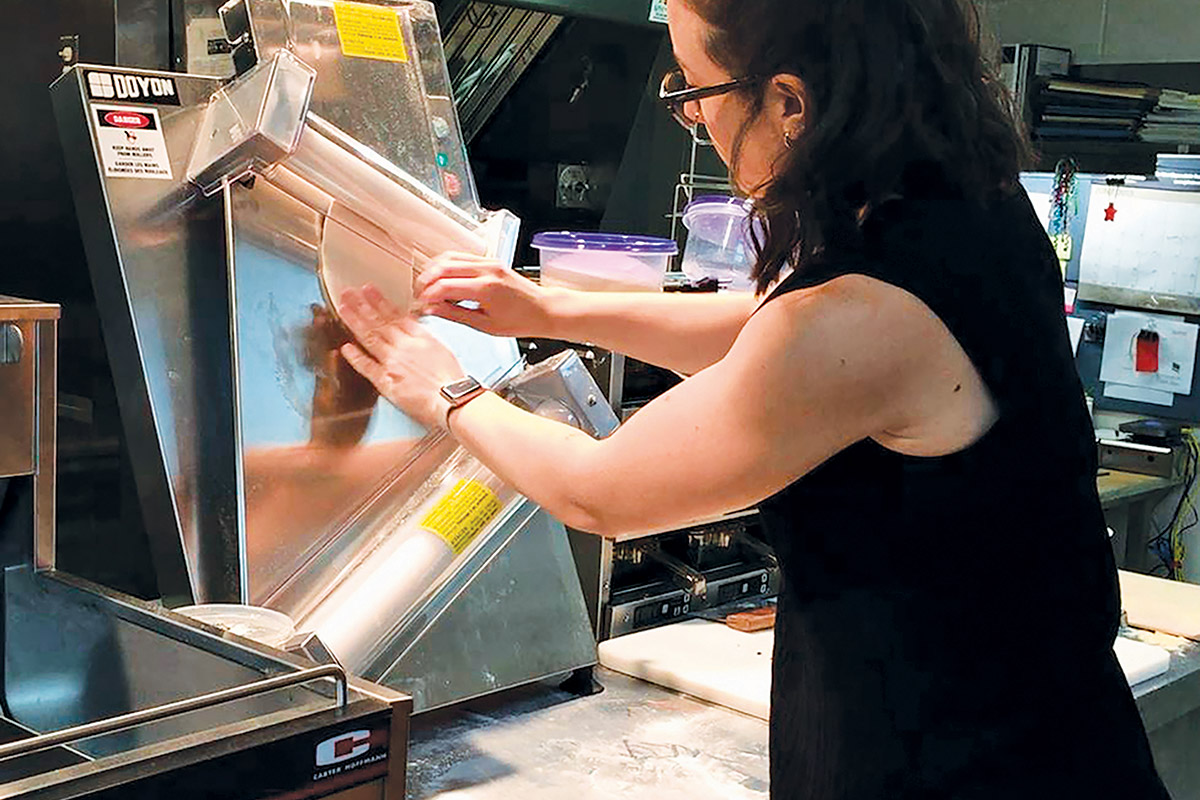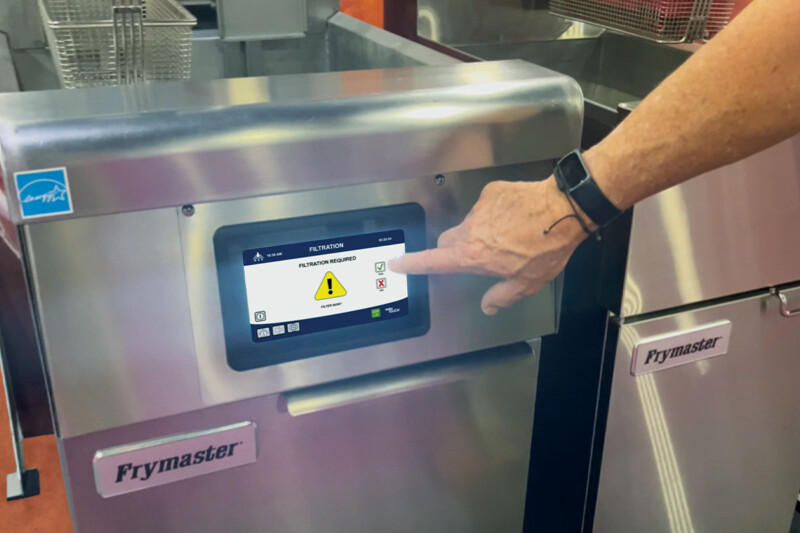Must-Know Maintenance Tips for Pizza Dough Sheeters

Before the toppings go on the pie, your pizza dough needs to be rolled and in place on the prep table. Rolling out dough balls by hand takes time and results may vary from pie to pie.
Operators who count on robust pizza sales often rely on countertop pizza dough sheeters to handle the volume; one manufacturer estimates sheeters turn out rolled pizza dough six times faster than rolling by hand. In addition, sheeters bring consistency in size and texture to each pizza. And their application goes beyond pizza: sheeters are good for pie crusts, pita rounds, naan and other rolled doughs, as well.
Like all foodservice equipment, countertop sheeters are subject to wear and tear. How do you keep your machine working smoothly and avoid a breakdown in the middle of peak production? When is it time to replace your unit?
With ongoing cleaning and proper maintenance, sheeters have a long life—about seven to 10 years, although some can last as long as 20 years, says service agent Rick Rush with Baltimore-based EMR Co.
Only when repair costs add up to approximately half or more of the cost of a new sheeter is it time to buy a new one. However, if your sheeter is going to be down for repair and it’s right before Super Bowl Sunday, say, Rush suggests you may want to buy a new one if the unit won’t be back up in time or if the labor cost of running rolled dough from another location is too high. But be sure to keep the existing unit once a service agent repairs it and you can use it as backup in the future. If you choose to wait for repairs and not order a new one, pre-roll enough pizza dough to cover the expected demand while the unit’s down.
An Ounce of Prevention
As with any piece of equipment, improper cleaning (or no cleaning at all), general abuse and allowing problems to continue without repair will send a sheeter to an early grave. Wipe down the surface and rollers daily (or more as needed) with a dry cloth and remove all debris.
As Rush says, “Clean your sheeter as directed even if you think it looks OK. Debris buildup can happen where you don’t easily see it and can cause premature failure. Don’t skimp on needed repairs. It’s Murphy’s Law: If it can fail, it will … at the worst possible time.” Also watch out for careless or abusive staff members—their mistakes can lead to big repair costs; he’s seen everything, from employees trying to flatten a piece of meat in the sheeter so it would cook faster to putting the entire unit in the sink to wash it to drying washed parts in the oven.

Sheeters crank out rolled pizza dough as much as six times faster than rolling by hand. Wonder whether you should repair or replace a sheeter? When repair costs add up to half or more of the cost of a new unit is it time to buy another one. — Courtesy of Doyon.
Signs of Trouble
Assuming employees keep on top of daily cleaning, what are some signs that your unit is developing problems? Listen for squeaking, for starters. A deeper monthly cleaning program can prevent this. Take the covers and handle off and unscrew the panel to get to the gears that turn the rollers.
Use a small vacuum to remove flour and dough balls (a toothbrush or other small brush works, too) and a cloth to clean any excess grease. Use food-grade oil to lubricate the chain and bearings; removable belt assemblies give you access to the bearings.
Another sign of wear is when the rollers tear and stretch the dough. Use a dry cloth to clean the rollers, remove all debris and clean the belts on both sides that turn the roller. If this doesn’t do the trick, call a service company to inspect and service the slip clutches that may not be turning the belts at the correct speeds. Clutches can wear out over time, and belts and chains can stretch and slip.
Some operators have the mechanical ability to do minor repairs such as replacing a plug or switch, but Rush recommends calling a service agent for repairs that involve motors, bearings and high-voltage electricity; doing these types of repairs yourself, he adds, can lead to safety and liability issues.
“Repairs are very affordable if you get your machine looked at when a problem starts rather than wait for multiple problems to deal with,” says one sheeter maker. “The cost is often negligible compared to the unit’s lifespan.”
Notes on Lower-End Models
Some less-expensive sheeters designed to handle smaller volumes of dough have a belt and motor on the back of the unit, using a pulley system to drive the rollers rather than chains. These are closed systems and don’t require cleaning. However, you may need to periodically replace the belt to prevent slippage and uneven rolling. These units, just like the higher-end versions, require cleaning in the front, though.
RELATED CONTENT
- Advertisement -
- Advertisement -
- Advertisement -
TRENDING NOW
- Advertisement -
- Advertisement -
- Advertisement -


